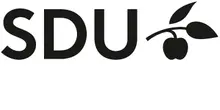
Ranking
The Best Microeconomic Books
Read a summary using the INOMICS AI tool
Anyone in the midst of their undergraduate degree will know of the two main tenets of economics: micro and macro. If you’re looking for the best macroeconomic books, you can head over to our article on that topic, because in this piece, we’ll be going through some of the most useful and interesting microeconomic books which will help you get up to speed on all of the fundamentals of the discipline. And remember, these books aren’t only for students - laypeople who are interested in the subject can also benefit from picking up one of these tomes. And what better time to do some reading than when stuck inside during the pandemic?

Suggested Opportunities
- Conference
- Posted 3 days ago
46th RSEP International Conference on Economics, Finance and Business
Between 17 Apr and 18 Apr in Paris, France
- Researcher / Analyst Job
- Posted 3 days ago
Researcher in Economic Theory and Policy, Behavioural Economics, Empirical Economics, or Econometrics (75 %; EG 13 TV-L)
At Düsseldorf Institute for Competition Economics (DICE) - University of Düsseldorf in Düsseldorf, GermanyPrinciples of Microeconomics - N. Gregory Mankiw
Now in its seventh edition, this textbook on microeconomics is one of the most widely-used and respected. Offering an in-depth overview of all of the fundamentals of the microeconomic discipline, it’s also a surprisingly accessible read for a dense university textbook. It’s arranged in short chapters, Mankiw himself is a highly respected economist, and it’s a great starting point even for laypeople.
Freakonomics: A Rogue Economist Explains the Hidden Side of Everything - Steven Levitt and Stephen J. Dubner
No list of microeconomics books would be complete without the extremely famous, and very enjoyable, Freakonomics. Levitt and Dubner’s book, a collection of articles, focuses on the application of economic methods to everyday things. There are chapters on cheating, drug dealing, the KKK, and even naming children, among other things. It was such a huge success it spawned a blog, a radio show, a sequel, and even a film.
Prices and Quantities: Fundamentals of Microeconomics - Rakesh V. Vohra
This book attempts to change up exactly how microeconomics is taught, by beginning with the most basic principles which only involve one variable and steadily getting more complicated. What this achieves is that the mathematics required to fully grasp microeconomics is simplified, in that the calculus steadily gets harder as the book progresses. Vohra also uses real-world examples to make concepts easier to grasp, making this a great addition to your microeconomics library.
Thinking, Fast and Slow - Daniel Kahneman
In short a summary of Kahneman’s research over the course of several decades of highly successful economics work, Thinking, Fast and Slow is much more than that. Really, it’s a book about how human judgment can’t really be trusted - and how knowing this information can change how you see your own decision-making processes and change your life. The book has sold over one million copies and is also an important behavioural economics book.
Microeconomics - Paul Krugman and Robin Wells
Much the same as the duo’s book on macroeconomics, Krugman and Wells’ book explaining the fundamentals of microeconomics is accessible, nicely written, and covers most everything you’ll need to know about the discipline. It tries its best not to use jargon when explaining its concepts, and uses plenty of real-world examples to make them as easy to understand as possible. This is a great book if you want to get away from the dense language and confusing jargon of economics and easily learn about microeconomics which, after all, isn’t rocket science!
-
- PhD Program, Program, Postgraduate Scholarship
- Posted 1 week ago
PhD Program in Economics - 6 Fully Funded Scholarships
at Luiss Guido Carli University of Rome in Rome, Italy
-
- Postdoc Job
- Posted 1 week ago
6-Year Postdoc with Option for a PermanentContract (f/m/d, 100%)
At ZEW – Leibniz-Zentrum für Europäische Wirtschaftsforschung GmbH Mannheim in Mannheim, Germany
-
- Conference
- Posted 1 week ago
Macroeconomic Policy in a Heterogeneous and Imperfectly Rational World - 6th Joint NBP-LB-CEBRA Biennial Conference
Between 24 Sep and 25 Sep in Warsaw, Poland













